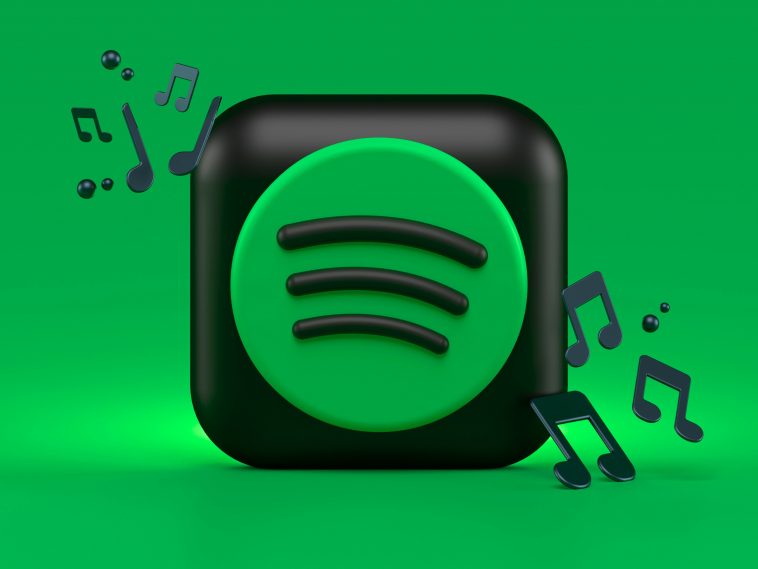In 2021, while working as a marketing consultant for Japanese startups in Kenya, Aoi Narita discovered the song “Love Nwantiti” by Nigerian Afrobeats artist CKay and was instantly captivated by the genre. “The lyrics were beyond my comprehension, but the tune lingered in my mind,” she communicated to the Rest of World via text. This encounter sparked her interest in Afrobeats, leading her to explore and continuously enjoy music from various Afrobeats artists.
By November 2022, Narita took on a new role in Nigeria, serving as an investment manager for Kepple Africa Ventures, a firm focusing on early-stage investments. Her affinity for the country’s music scene significantly influenced her move to Nigeria. In 2023, Afrobeats dominated her Spotify streaming list, with the top five songs and artists from this genre. Narita shared, “Afrobeats accounts for 98% of my music playlist. The remaining 2% comprises K-pop and Japanese tracks… My exclusive preference for Afrobeats/Amapiano means Spotify no longer suggests different music genres to me,” she noted in her text communication.
Over recent years, Afrobeats has surged in global popularity, with artists filling significant arenas and stadiums across the United States, the United Kingdom, and Europe. This rise has been accompanied by increased collaborations between Afrobeats musicians and Western pop stars, much of which can be attributed to the expansion of digital music streaming services, notably Spotify.
From 2017 to 2022, Spotify witnessed a staggering 550% growth in streaming Afrobeats tracks. In 2023 alone, the genre accumulated over 14 billion streams on the platform, with cities like London, Paris, and Nairobi among the top five in streaming numbers.
Jude Abaga, a rapper and the ex-CEO of Chocolate City, a leading record label in Nigeria, spoke to Rest of World about Spotify’s role in Afrobeats’ rise. He highlighted that Spotify has been pivotal in linking African talent with the global audience and has become a vital indicator of the genre’s success and growth worldwide. According to Abaga, Spotify’s streaming data is now a benchmark for measuring individual and industry-wide music achievements.
Afrobeats’ popularity on Spotify can be attributed to the extensive groundwork laid by the platform in Nigeria, including the recruitment of local talent, as noted by Ayomide Tayo, a Nigerian pop culture expert and consultant. Tayo explains to the Rest of World that Spotify’s strategy is hands-on and engaging. “Spotify integrates into the local scene; their approach isn’t distant,” Tayo remarks. “The interaction doesn’t make you feel like you’re dealing with someone from far-off cities like Berlin, New York, or London. They’ve brought on board Nigerians who hold significant positions of influence and prestige. Moreover, they’ve demonstrated a willingness to invest substantially.”
This investment in Afrobeats is highlighted by the impressive statistic that Nigerian musicians earned over $27 million from Spotify in 2022 alone, as stated by Jocelyne Muhutu-Remy, Spotify’s managing director for sub-Saharan Africa. Muhutu-Remy shared with the Rest of World that Spotify actively promotes Afrobeats artists globally through its carefully selected playlists and other support initiatives, including prominent advertising like the massive billboards in Times Square.
In June of 2023, Spotify unveiled “Afrobeats: Journey of a Billion Streams,” a dedicated website that pays homage to the musical genre. By September of the same year, the track “Calm Down” by Rema, featuring Selena Gomez, achieved a significant milestone by entering Spotify’s Billions Club, which is comprised of almost 600 songs that have surpassed one billion streams. This marked a historic moment as it was the first occasion an African artist-led song achieved one billion streams on Spotify, according to the company’s announcement on its site
Spotify has further committed to fostering the growth of Afrobeats through organizing various events across Africa, as noted by Tayo. Throughout 2023, Spotify took the initiative to host over five local events, ranging from creative workshops and album release celebrations for artists to gatherings for crucial figures within the music industry. Tayo emphasized the importance of such significant efforts in a genre only about 25 years old, stating, “When you showcase the remarkable achievements within this genre, it demonstrates to the global audience that the appeal of Afrobeats extends far beyond just a handful of artists.”
For Dapper Group, a music distribution firm based in Lagos, Spotify has played a crucial role in expanding its reach into more established markets such as the United States and Europe. Ademola Alugo, the head of distribution at the company, highlights Spotify’s intuitive interface and functionalities as the primary reasons for its popularity among artists and listeners worldwide. “Spotify stands out; there’s no contest,” Alugo explained to the Rest of World. “When identifying a single audio-streaming service that has effectively closed the gap, the runner-up, Apple Music, doesn’t even come close. It lags far behind.”
Oyinkansola Fawehinmi, an attorney and entertainment industry executive, shared with Rest of World that the pioneering efforts of earlier music streaming platforms like Audiomack, Soundcloud, Boomplay, and the defunct Spinlet have significantly influenced Spotify’s success in Africa since its 2018 launch. Fawehinmi highlighted that Spotify’s current achievements in promoting Afrobeats were not initiated by the company itself but were built on the advancements made by these predecessors. “Spotify hasn’t been the driving force behind Afrobeats’ recent milestones,” Fawehinmi stated. “Instead, they’ve essentially been playing catch-up, utilizing their platform to enhance visibility.” She specifically noted the impact of Boomplay, owned by China, in making Afrobeats a global phenomenon.
Abaga, weighing in on the conversation, noted that Spotify’s significant streaming figures indicate Afrobeats’ popularity but cautioned against viewing these numbers as the sole indicator of success. He mentioned that these metrics, while helpful, don’t fully capture the essence of an artist’s true fan base compared to their digital following, adding, “It’s the best measure we have, even though it doesn’t encompass the full context of where these numbers are coming from and whether they accurately reflect an artist’s actual audience.”





